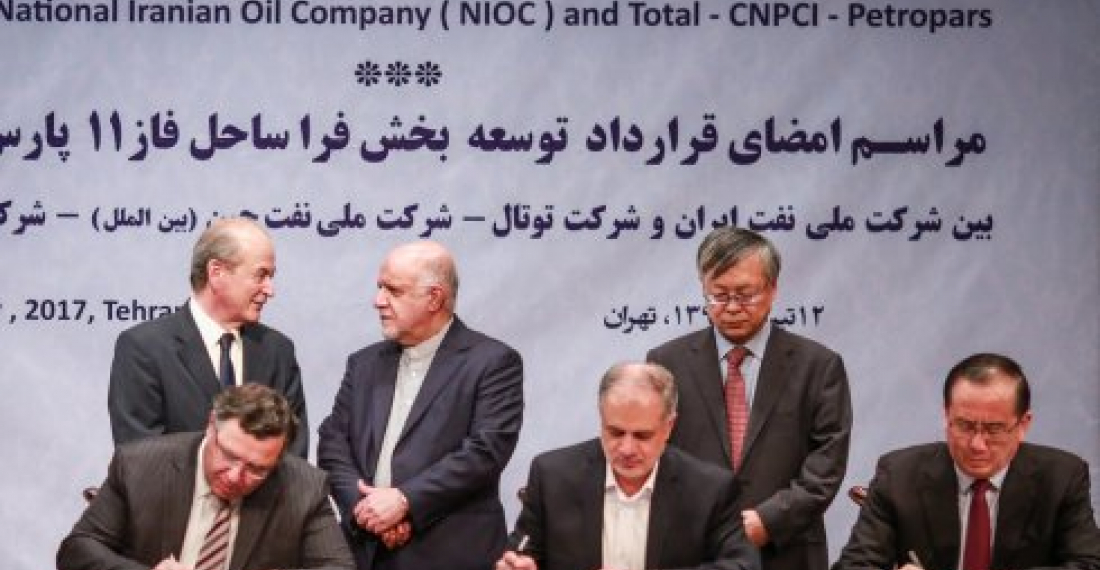Iran has signed a deal with France's energy company, Total and China's state-owned National Petroleum Corporation (CNPC) for the development of phase 11 of its South Pars gas field.
The $4.879-billion deal was signed on Monday (3 July) by the National Iranian Oil Company (NIOC), as the contractor of the project, and a consortium of companies comprising Total, CNPC and Iran's Petropars.
Based on the deal, Total has a 50.1 percent interest in the project, alongside CNPC which holds a 30 percent share and Petropars holding 19.9 percent of interest.
The project will have a production capacity of 2 billion cubic feet (about 56 million cubic meters) per day of gas or 400,000 barrels of oil equivalent per day including condensate. The produced gas will supply the Iranian domestic market starting in 2021.
Phase 11 will be developed in two phases. The first phase, with an estimated cost of around $2 billion, will consist of 30 wells and 2 wellhead platforms connected to existing onshore treatment facilities by two subsea pipelines. At a later stage, once required by reservoir conditions, a second phase will be launched involving the construction of offshore compression facilities, a first on the South Pars field,
In the signing ceremony of the deal, NIOC Managing Director Ali Kardor noted that based on $50 oil, phase 11 output will bring the country $84 billion in revenues, the Iranian News Agency (IRNA) reported.
source: commonspace.eu with Tehran Times and agencies
photo: The signing ceremony of a new deal between Iran's National Oil Compant and a consortium led by France's energy giant TOTAL. (picture courtesy of Tehran Times)







